And who would they hold responsible if it happened?
With Brexit negotiations having now passed the deadline set by the European Parliament, it now looks likely that there will not be a trade deal agreed between Britain and the EU before the transition period ends.
While 44% of Britons oppose leaving the transition period with the EU without a trade deal, one in three Britons support it (32%). This includes fully two-thirds (67%) of Leave voters.
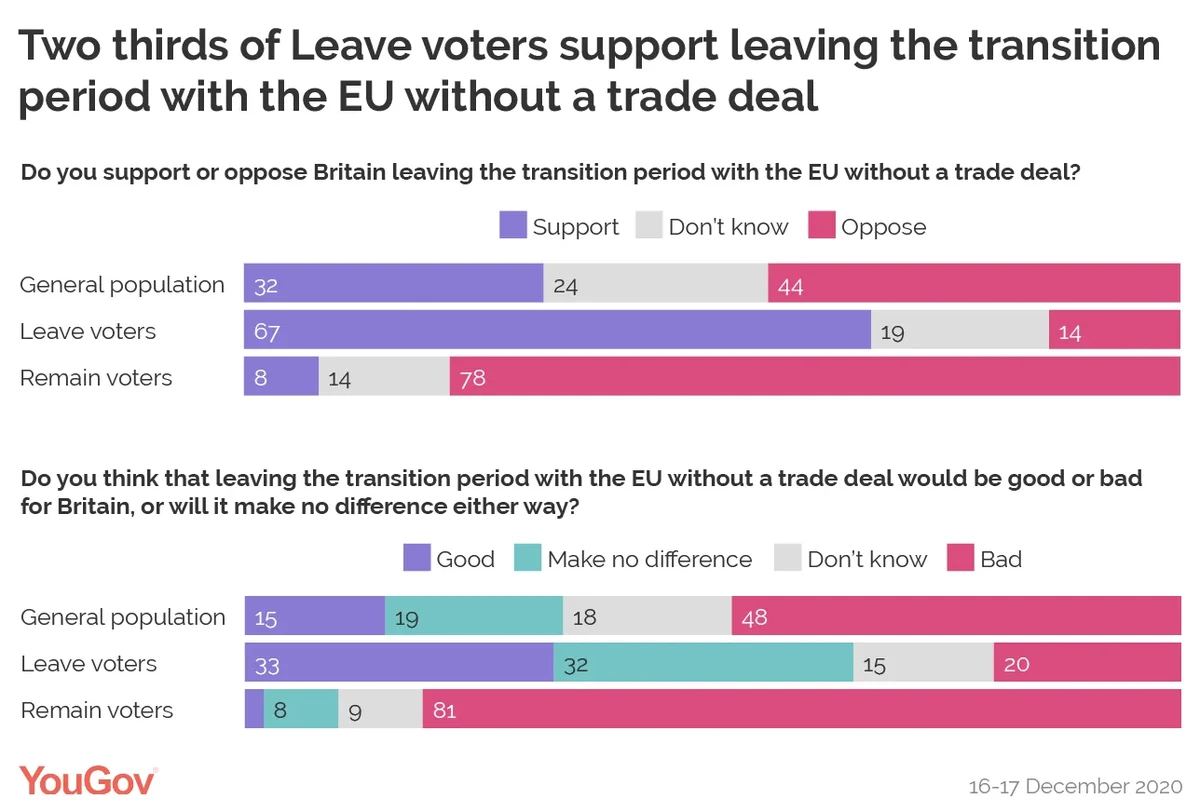
Although they may support the move, Leave voters are split on the likely impact. One in three (33%) think it will be good for Britain, while a similar number (32%) think it will make no difference either way. Only 20% think it will be bad for Britain – in marked contrast to the 81% of Remain voters who think the same.
Among all Britons, 48% think leaving without a deal will be bad, compared to 15% who think it will be good and 19% who think it will make no difference.
What about the wider impacts?
A majority of Britons think that leaving without a deal will result in the price of food and groceries increasing (59%) and the economy will take a short-term hit (54%). Pluralities also expect that immigration levels will fall (44%) and that British companies will do worse (41%).
On other factors the picture is much more mixed. When it comes to the outlook for the economy long term, one in three (35%) think it will ultimately do better, while a similar proportion (33%) think the opposite.
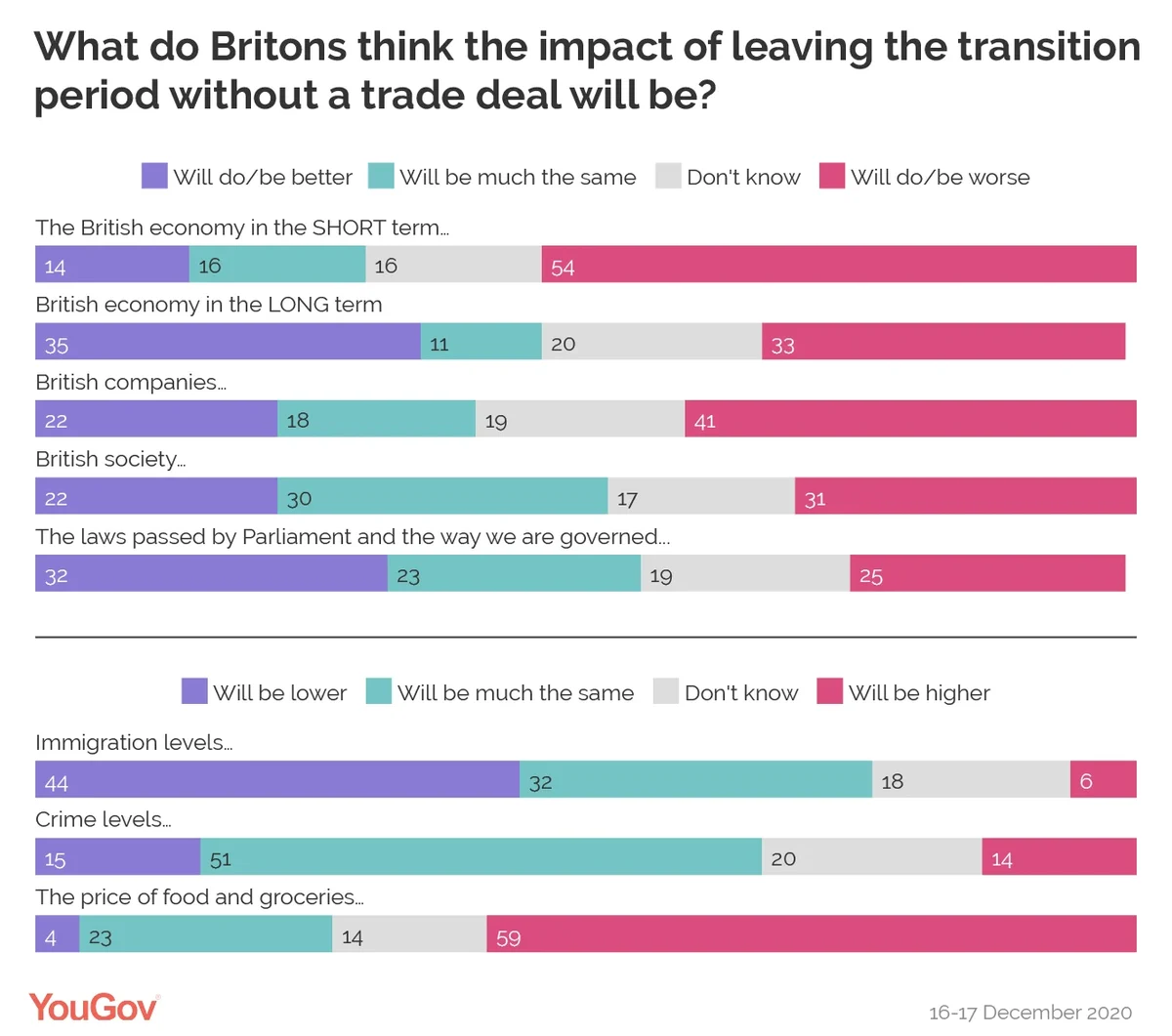
Naturally, Remain and Leave voters have very different expectations. Although Brexit backers are completely divided on the short-term economic impact – 29% think the economy will get better, 29% worse, and 29% no difference – they overwhelmingly think it will improve in the long term (70%). By contrast, eight in ten Remain voters (82%) think the economy will be hit in the short term, and 63% think it will be worse off in the long term.
Leave voters think immigration levels will fall (61%), while Remain voters are less sure (34% think so, with 45% thinking there will be no change). Remain voters are convinced food prices will go up (82%), while Leave voters are split between those who think they will remain the same (44%) and those who think price rises will occur (39%).
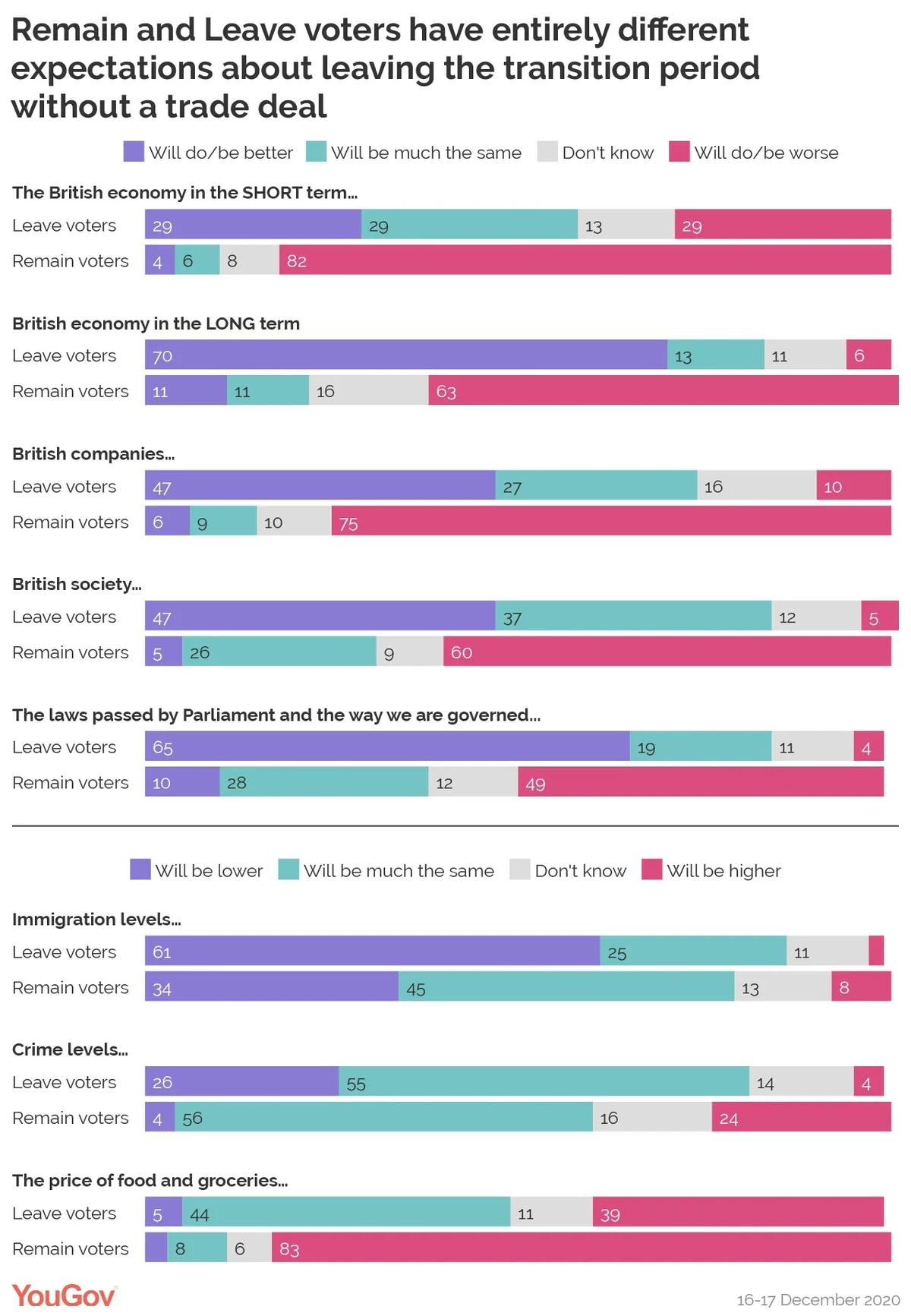
Who would be responsible for Britain leaving without a trade deal?
Prime Minister Boris Johnson is the figure Britons would hold most accountable for any failure to reach an agreement. Four in ten (42%) say he would bear “a lot of the responsibility for Britain leaving without a deal”, with a further 23% saying he would bear some of the responsibility.
Next are the EU, whom 35% think would bear a lot of the responsibility if talks break down. Another 25% think they would be partly responsible.
Among MPs, those who voted against Theresa May’s Brexit deal in order to get a no-deal Brexit are unsurprisingly those held most culpable in the event a trade deal isn’t reached. One in three (34%) say these MPs would bear a lot of responsibility, with another 23% saying they would be partly responsible.
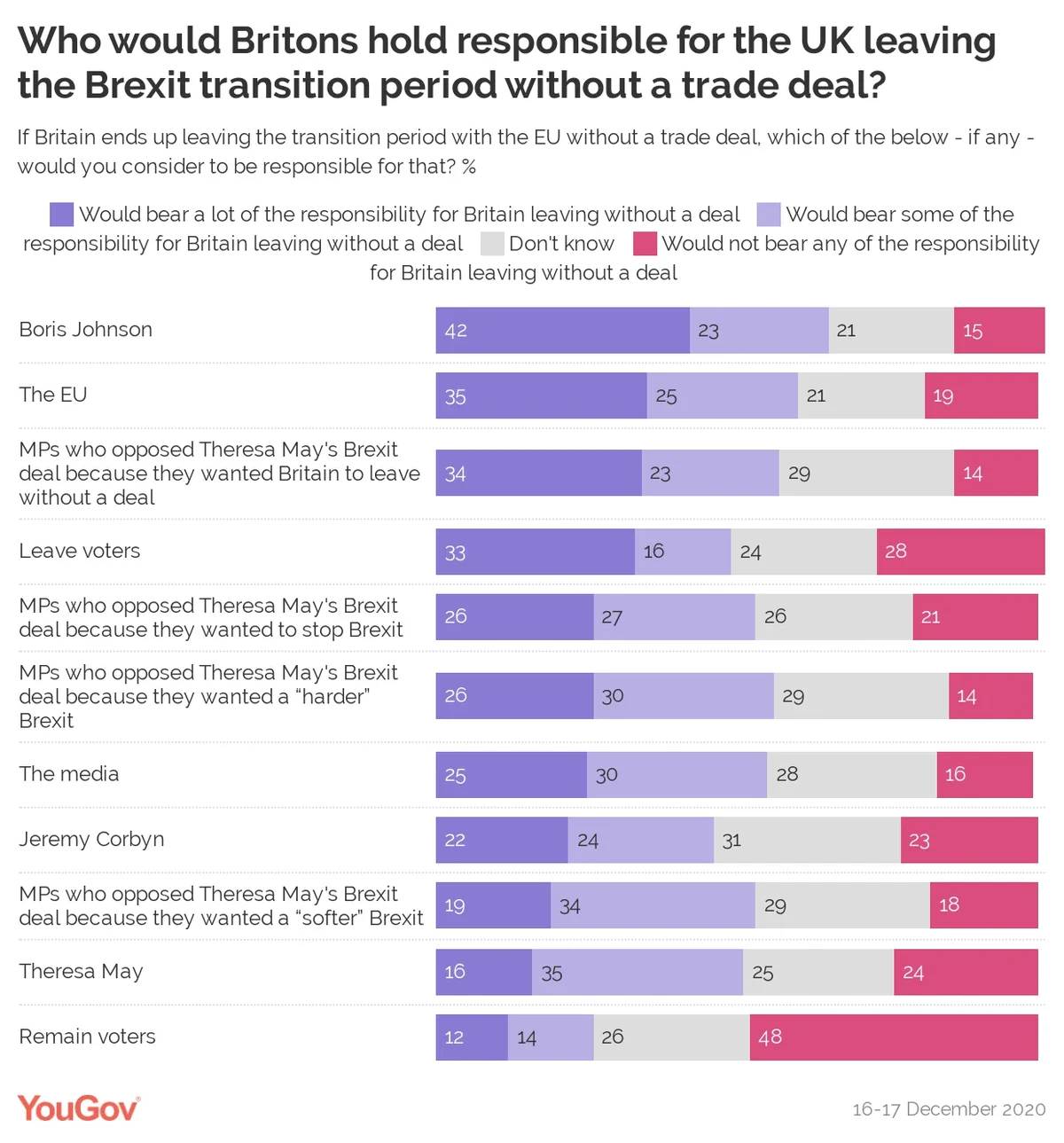
A third also see Leave voters as being much to blame in the event that Britain leaves the transition period without a deal, with another 16% thinking they are partly responsible. By contrast, only 26% feel that Remain voters would be in any way responsible for the situation.
Theresa May is increasingly off the hook for her role in failing to agree a Brexit deal with the EU. Half of Britons (51%) see her as responsible if no trade deal is reached, down from 68% in February 2019 when she was still Prime Minister. The number feeling that she would bear “a lot” of the responsibility has more than halved in that time, from 35% to 16%.
Again, Remain and Leave voters have completely different views.
For Leave voters the primary culprit would be the EU, who 81% would hold responsible for a no deal scenario, including 64% who say they would bear “a lot” of the responsibility.
For Remain voters, Boris Johnson would be the primary architect of leaving without a deal – 85% would hold him responsible, including 69% giving him “a lot” of the responsibility.
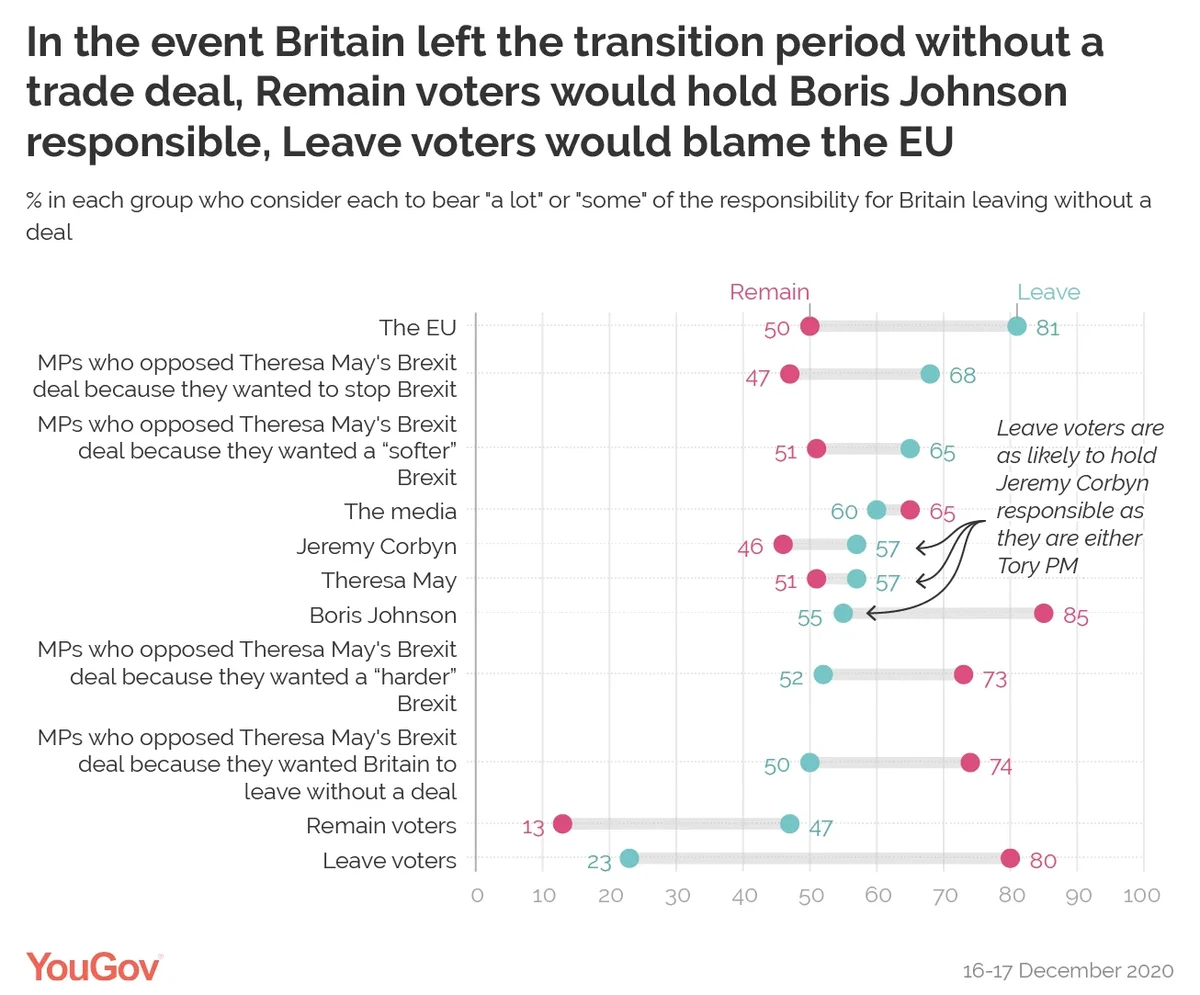
By contrast, Leave voters are as likely to say Theresa May (57%), and even Jeremy Corbyn (57%), bear responsibility for a no-deal exit as they are Boris Johnson (55%). In fact, Leave voters are more likely to assign the Labour leader “a lot” of the responsibility (34%) than either Conservative prime minister (21-22%).







